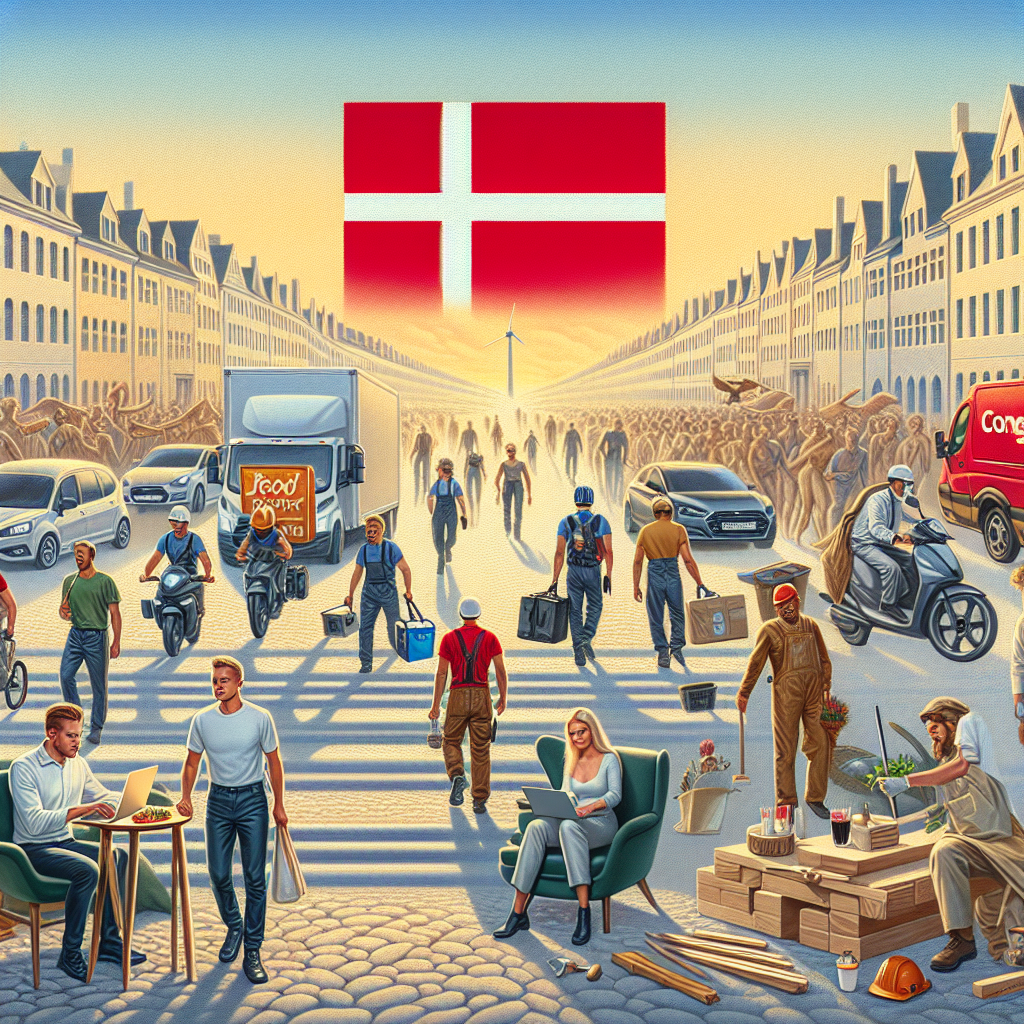The Rise of the Gig Economy in Denmark
As a macroeconomist who has dedicated his career to studying the economic policies and trends in Nordic countries, the rise of the gig economy in Denmark is a trend that has captured my attention in recent years. The gig economy, also known as the sharing economy, is a labor market where businesses hire independent contractors, freelancers, and temporary workers to perform short-term, non-traditional jobs. This trend has been gaining momentum globally, and Denmark is no exception.
The Impact of the Gig Economy on Economic Growth
Denmark is known for its strong welfare state, high levels of social security, and well-functioning labor market institutions. However, the gig economy has posed challenges to the traditional labor market structures in the country. The rise of ride-sharing services like Uber and food delivery platforms like Wolt has disrupted traditional industries and raised questions about labor rights and social protections for gig workers.
- Fleksjob (flexible job): A government scheme in Denmark that offers flexible employment opportunities for people with reduced work capacity.
- Social sikring (social security): The Danish social security system that provides financial assistance to those in need.
- Lønmodtager (employee): A traditional full-time employee with a fixed salary and benefits.
The gig economy has created new opportunities for individuals to earn income and work on their own terms, but it has also raised concerns about income security, access to social benefits, and job stability. As a researcher, my aim is to understand the underlying economic implications of this shift and its potential impact on Denmark’s overall economic growth and stability.
The Evolution of Gig Economy Platforms in Denmark
In recent years, Denmark has seen the emergence of several local and international gig economy platforms that offer services ranging from transportation and delivery to freelance work and short-term rentals. Platforms like GoMore, Too Good To Go, and Airbnb have gained popularity among Danish consumers, providing them with convenient and cost-effective alternatives to traditional services.
- Fleksjobstræning (flex-job training): Training programs designed to help individuals with reduced work capacity gain skills and participate in flexible employment opportunities.
- Skattefradrag (tax deduction): Tax relief or deductions available to gig workers for business-related expenses.
- Arbejdsmarkedsbidrag (employment market contribution): A social security tax paid by both employers and employees in Denmark to fund social welfare programs.
These platforms have not only transformed consumer behavior and market dynamics but have also provided new sources of income for individuals seeking to supplement their primary income or pursue flexible work arrangements. However, the proliferation of gig economy platforms has also sparked debates about regulatory oversight, tax compliance, and labor rights for gig workers.
Regulatory Challenges and Policy Considerations
The Danish government has been grappling with the task of regulating the gig economy while balancing the need to foster innovation and economic competitiveness. Policymakers have sought to strike a balance between supporting the growth of gig economy platforms and ensuring fair labor standards and social protections for gig workers.
- Arbejdstidsregler (working time regulations): Laws that govern the maximum allowable working hours and minimum rest periods for employees in Denmark.
- Barselsorlov (maternity leave): Paid leave for mothers to care for their newborns, which is a key part of Denmark’s social security system.
- Arbejdsløshedsunderstøttelse (unemployment benefits): Financial support provided to individuals who have lost their jobs and are actively seeking new employment.
At the heart of the regulatory debate is the need to adapt existing labor market policies to accommodate the evolving nature of work in the digital age. As a researcher with a focus on macroeconomic policies, I believe that finding a balance between promoting entrepreneurial freedoms and safeguarding workers’ rights is crucial for the sustainable growth of the gig economy in Denmark.
The Future of the Gig Economy in Denmark
Looking ahead, the gig economy is poised to continue shaping Denmark’s labor market and economic landscape. The ongoing digitalization of services, changing consumer preferences, and the desire for flexibility in work arrangements are likely to fuel the expansion of gig economy platforms in the country.
- Digitalisering (digitalization): The process of integrating digital technologies and systems into various aspects of business and society.
- Arbejdskraftens mobilitet (labor mobility): The ability of workers to move between different jobs and industries in response to changing market conditions.
As a macroeconomist, I believe that the gig economy has the potential to contribute to greater labor market dynamism and innovation in Denmark. However, it is essential for policymakers to address the regulatory challenges, support the upskilling of gig workers, and ensure that social protections are extended to all forms of work in the digital economy.
Conclusion
The rise of the gig economy in Denmark presents both opportunities and challenges for the country’s economy. As a researcher, I am committed to studying the ongoing transformation of the labor market and its broader implications for economic growth, social welfare, and policy-making. With a balanced and forward-looking approach, Denmark can harness the potential of the gig economy while safeguarding the well-being of its workforce and maintaining its position as a global leader in social and economic progress.





